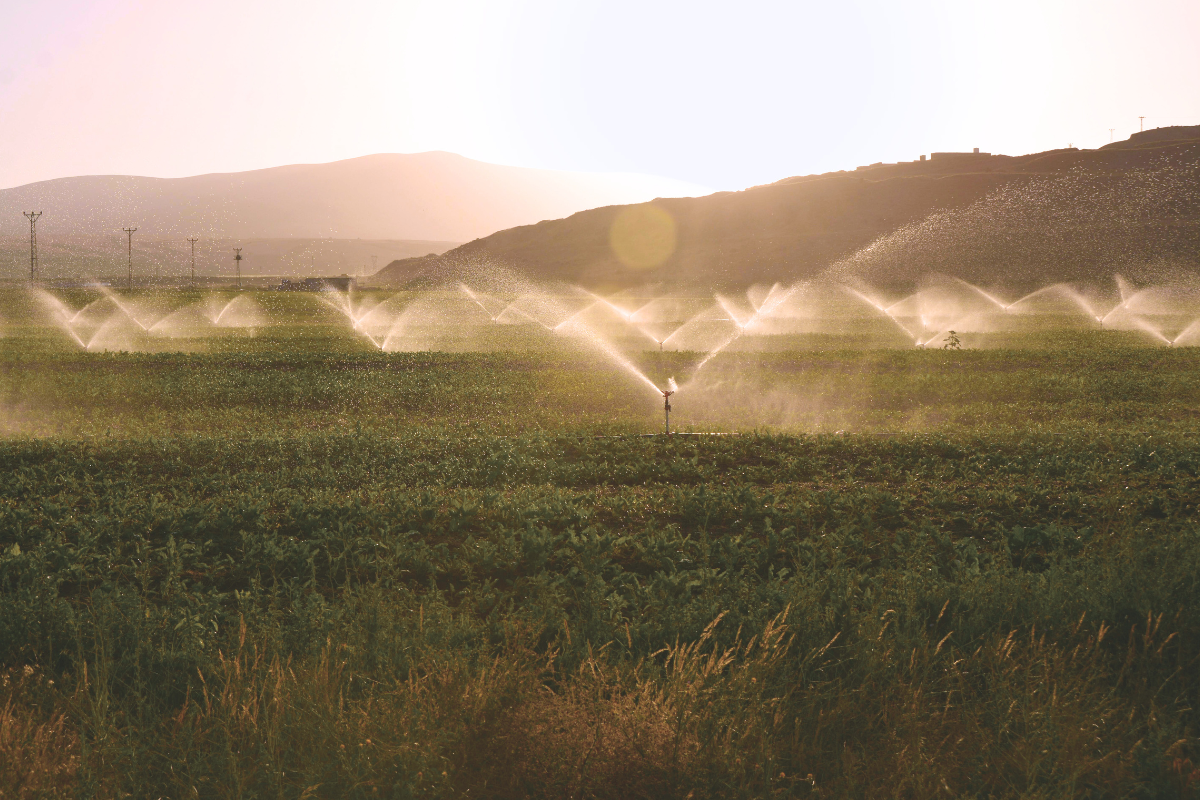Did you know? A single leaking tap in your building wastes up to 5,500 litres of water per year, which is the equivalent of nearly 70 bathtubs! Now imagine the impact of undetected leaks across an entire commercial property. Evidently, traditional water management systems are inefficient, costly, and unsustainable. In the face of increasing urbanisation, climate change, and ageing infrastructure, the need for efficient and sustainable water management has never been more critical.
With the rise of smart water technology, buildings can now monitor and control water usage in real time. This helps to reduce waste, cut energy costs, and ensure compliance with UK sustainability regulations. As of 2024, only about 4% of UK companies employ the use of smart meters ー while the goal is to have smart metering in 55% of all non-private properties by 2030. So, how can this be achieved?
In this guide, we explore:
- What is smart water management?
- Key smart water technologies to reduce waste.
- How automated systems optimise energy efficiency.
- Steps to implement smart water solutions in commercial buildings.
Smart water management utilises technology, automation, and data analytics to improve water efficiency and energy savings in buildings.
Using IoT sensors, AI-driven leak detection, and automated controls, property managers can track usage, prevent water loss, and reduce heating costs; all while meeting Net Zero targets.
If you are interested in reading more about AI in facilities management, read our article on Building Automation here.
One of the most effective ways to optimise water use in a building is by implementing smart meters equipped with Internet of Things (IoT) sensors. How are smart meters different to traditional water meters? Unlike traditional water meters that require manual readings and periodic checks, digital meters provide real-time tracking of water flow, pressure, and quality. They can detect unusual consumption patterns, pinpoint leaks, and provide valuable data for predictive maintenance.
When irregularities occur — such as an unexpected spike in usage or a drop in pressure that may indicate a leak — smart meters send instant alerts to building managers. This allows them to act immediately, preventing costly water damage and excessive utility bills. Additionally, these meters can be integrated with Building Management Systems (BMS) to optimise water distribution across an entire property, ensuring that consumption is aligned with actual demand.
Smart meters allow property managers to spot inefficiencies before they become costly problems. It can help shift reactive maintenance to proactive maintenance in maintaining commercial properties.
Landscaping is an essential feature for many commercial properties, but inefficient irrigation systems often lead to excessive water consumption. Overwatering not only wastes resources, but also drives up costs and can contribute to soil degradation. Smart irrigation systems, powered by artificial intelligence and real-time data, adjust water use based on actual environmental conditions — ensuring that plants receive only as much water as they need.

These systems utilise weather forecasts and soil moisture sensors to assess when and how much water should be used. For example, if rain is expected in the next 24 hours, the irrigation system will automatically adjust its schedule to avoid unnecessary watering. Property managers can also remotely monitor and control irrigation settings through a mobile app, giving them greater flexibility in managing water consumption.
By preventing excessive watering and optimising schedules, smart irrigation systems can reduce water use by up to 50%. This not only cuts utility bills, but also helps buildings obtain green building certifications — boosting their sustainability credentials while enhancing long-term cost savings.
Water leaks are one of the biggest hidden costs in commercial buildings. According to industry data, approximately 20% of public water supply is lost due to leaks — many of which go unnoticed for long periods. Even small leaks can add up, leading to skyrocketing utility bills, water damage, and costly repairs. The solution? AI-powered leak detection systems that monitor water flow in real time and automatically shut off supply in case of a major leak.
Using machine learning algorithms, these smart sensors can differentiate between normal usage and unusual patterns. Unlike traditional leak detection methods that rely on manual inspections or tenant complaints, these systems operate 24/7, providing instant alerts the moment an issue is detected.
For property managers, this means no more waiting until a leak becomes a major disruption. Instead, they receive immediate notifications via mobile alerts, allowing them to take actionbefore damage escalates. By preventing water waste and reducing the risk of structural damage, automated leak detection protects both the financial and physical integrity of a building.
Upgrading to water-efficient fixtures is one of the simplest yet most impactful ways to reduce water consumption in a building. Traditional taps, showers, and toilets often use far more water than necessary, leading to wasteful consumption and higher costs.
By integrating sensor-based and low-flow fixtures, you can automatically shut off water when not in use, preventing excess supply from being wasted. Similarly, low-flow toilets use advanced flushing technology to cut water usage per flush from 9 litres to as low as 4.5 litres — without sacrificing performance. Smart water pressure regulators further enhance efficiency by ensuring that water is evenly distributed across the building, preventing overuse in certain areas while maintaining optimal flow.
Heating water is one of the most energy-intensive processes in commercial buildings, accounting for nearly 20% of total energy consumption. Smart water heating systems solve this problem by heating water only when necessary and recovering wasted heat for reuse.
Tankless water heaters are a major upgrade from traditional water tanks. Instead of constantly maintaining a reservoir of hot water, these systems heat water on demand, reducing energy loss. Additionally, heat recovery systems capture excess thermal energy from wastewater, showers, and industrial processes, repurposing it to preheat incoming cold water. This significantly lowers the energy required to maintain hot water supplies.
Some of the most advanced systems use AI-powered water circulation technology, which optimises hot water delivery to ensure that tenants and building occupants receive heated water instantly and efficiently. By reducing energy waste and improving overall system performance, intelligent water heating solutions cut energy bills while strengthening a building’s sustainability profile.
By investing in real-time monitoring, AI-powered automation, and water-efficient technologies, buildings can drastically cut waste, improve energy efficiency, and enhance their overall value.
The transition to smart water management doesn’t have to be complex - but waiting too long could mean higher costs, increased regulatory pressure, and lost competitive advantage.

Karsons Consulting are members of the Chartered Institute of Building Services Engineers, The Association of Consultancy and Engineering, British Institute of Facilities Managers and the Building Services Research and Information Association.